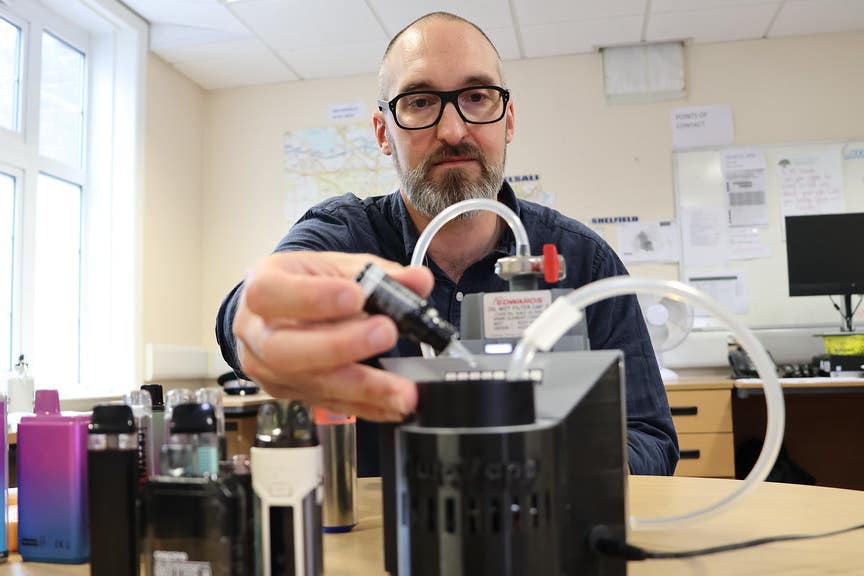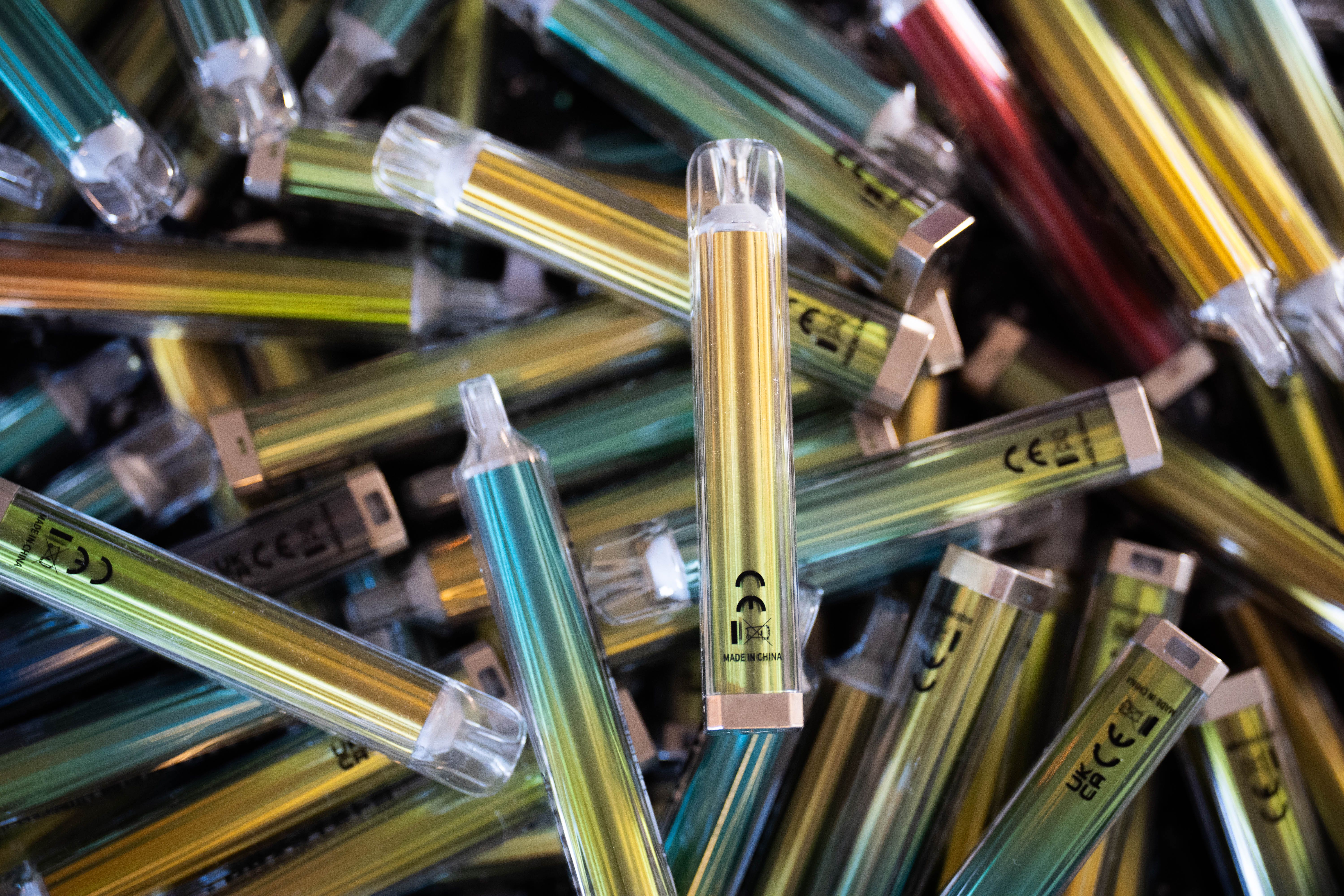Up to one in four vapes confiscated from secondary school pupils in England contain the synthetic drug "spice", a new study has revealed.
Researchers at the University of Bath analysed 1,923 e-cigarettes and e-liquids from 114 schools across seven regions.
The study found spice in 13 per cent of overall samples, but this figure rose to around 25 per cent in London and Lancashire.
Professor Chris Pudney, who led the research from the university’s Department of Life Sciences, also found spice-laced vapes are easily available online.
These vapes are often deceptively marked as containing THC – the active ingredient in cannabis – despite actually being spice, a more dangerous and cheaper substance.
Researchers surveyed online accounts on Facebook, Instagram, and TikTok over three months, tracking those purporting to sell THC vapes.
They discovered that as social media platforms attract younger demographics, more e-liquids marketed as THC are likely to be spice.

This was evident with 68 per cent of such products on TikTok containing the drug, compared to just 12 per cent on Facebook.
The University of Bath said this mirrored real-world data, with only 1.2 per cent of vapes and e-liquids confiscated in schools containing THC and 13 per cent containing spice.
Prof Pudney said: “Spice e-liquids are trivially available on social media like TikTok and Instagram, with apparent drug dealing on these platforms.
“A simple search of social media platforms brings up hundreds of accounts selling this material, making them incredibly easy for young people to find.
“Spice is much cheaper than THC. Young people think they’re buying a cannabis product but instead they’re being pushed a highly addictive, cheap drug with unpredictable and serious health effects, such as psychosis, seizures and heart problems.”
The report’s authors are calling for Ofcom – the media and communications regulator for the UK – to open an enforcement programme for online drug sales.
Under the Online Safety Act, social media platforms are expected to assess the risk that their services could be used to sell or promote illegal drugs.
Ofcom can issue fines of up to £18 million or 10 per cent of a company’s global annual revenue, whichever is greater, against companies that do not follow their duties.

Prof Pudney added: “The Online Safety Act needs to be used to compel social media companies to find and remove the accounts selling these drugs to children.
“We are calling for Ofcom to be properly resourced and directed to open a specific enforcement programme dedicated to online drug sales.
“People who use spice are at high risk of coercion and abuse by drug dealers. This is a failure of online safety that is causing direct harm to children.”
The study, conducted between June and August this year, identified 120 TikTok accounts and 83 Instagram accounts offering vapes described as containing THC for sale.
This is despite THC being a controlled substance in the UK.
Researchers used their analysis of vapes and e-liquids from schools to visually triage online images of spice-containing e-liquids online.
This visual analysis found nearly 70 per cent of TikTok accounts and more than 50 per cent of Instagram accounts claiming to sell THC were actually selling spice.
In March 2025, researchers made social media companies aware of the issue through the Drugs on Social Media working group.

However, as of September 1, around 70 per cent of accounts tracked by researchers remain online and easily accessible through keyword searches, they said.
Prof Pudney said: “We have clearly detailed this issue to the major social media companies.
“About 70 per cent of accounts that we have identified and tracked are still online and easily accessible. The response of these platforms appears insufficient to tackle this urgent issue.”
Fiona Spargo-Mabbs, who chairs the Drugs on Social Media working group, is the founder of drug education charity the Daniel Spargo-Mabbs Foundation.
She said: “As we start another academic year, we’re very concerned that we’re going to see increased use – and increased harm from the use – of spice by teenagers, as a result of the ongoing visibility of vapes being sold as THC on their social media platforms.
“This important research has clearly shown that until this is adequately addressed, young people will continue to be exposed to potentially significant risk from this potent substance, to an extent we haven’t seen before.”
The study involved the University of Bath, University College London, the University of Glasgow, MANchester Drug Analysis & Knowledge Exchange (MANDRAKE), Manchester Metropolitan University, Teesside University, the Daniel Spargo-Mabbs Foundation, and the University of Bristol
The paper is entitled A Chemical And Digital Analysis Of E-Cigarettes Seized From English Schools And the Social Media Marketplace.







